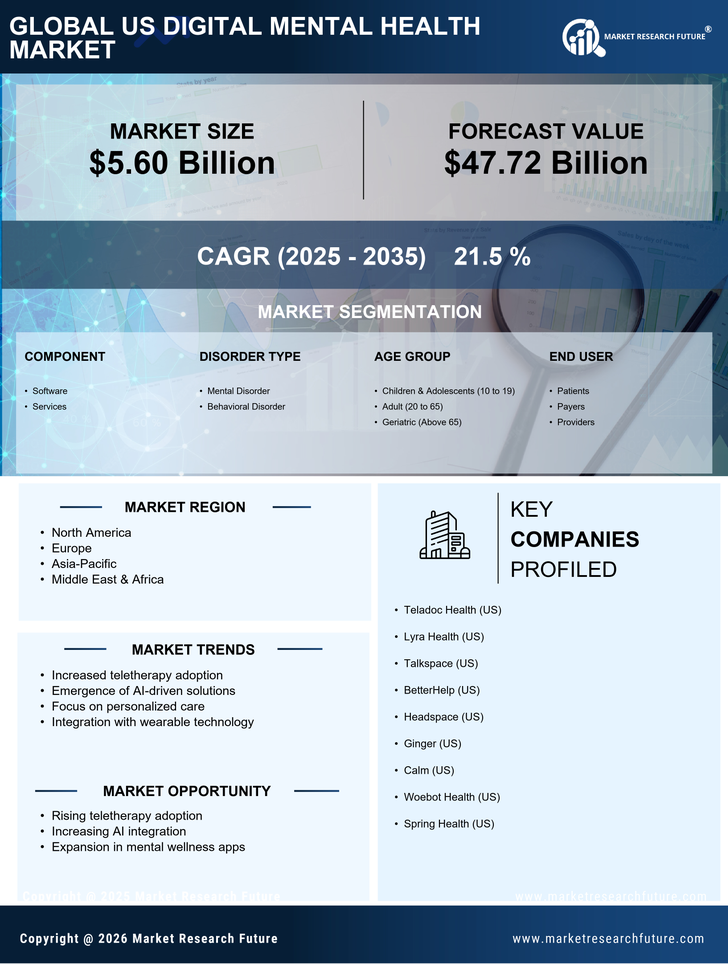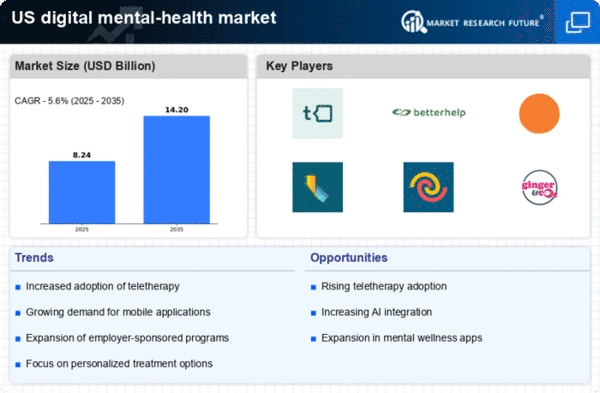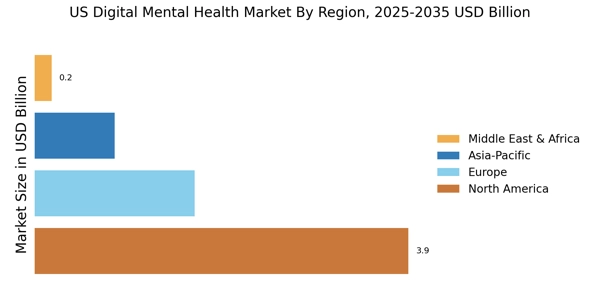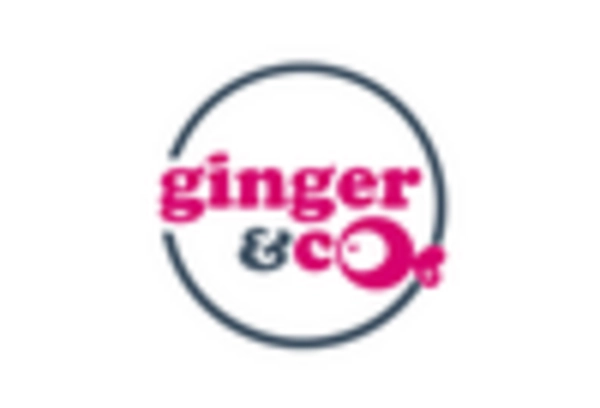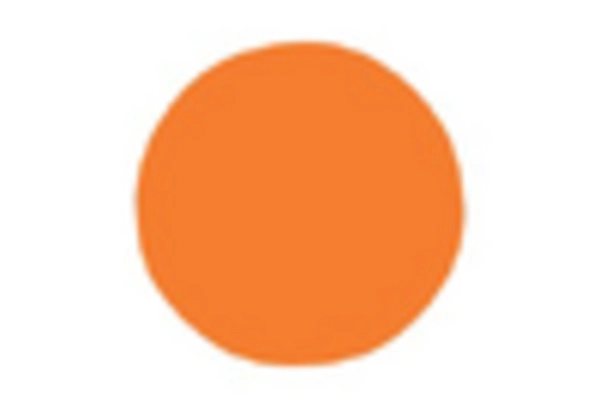Rising Awareness of Mental Health Issues
The US Digital Mental Health Market is experiencing a notable surge in awareness regarding mental health issues. This heightened consciousness is largely attributed to various campaigns and educational initiatives that emphasize the importance of mental well-being. As individuals become more informed about mental health conditions, they are increasingly seeking digital solutions for support and treatment. According to recent surveys, approximately 20% of adults in the United States reported experiencing mental illness in the past year, which underscores the growing demand for accessible mental health resources. This trend suggests that as awareness continues to rise, the US Digital Mental Health Market may witness further expansion, driven by the need for innovative and user-friendly digital platforms that cater to diverse mental health needs.
Technological Advancements in Digital Platforms
Technological advancements play a pivotal role in shaping the US Digital Mental Health Market. The integration of cutting-edge technologies such as mobile applications, virtual reality, and telehealth platforms has revolutionized the way mental health services are delivered. These innovations not only enhance user experience but also improve accessibility for individuals who may face barriers to traditional therapy. For instance, the use of mobile apps for mental health support has increased significantly, with a reported 50% growth in downloads over the past year. This trend indicates that consumers are increasingly turning to technology for mental health solutions, thereby propelling the growth of the US Digital Mental Health Market. As technology continues to evolve, it is likely that new tools and platforms will emerge, further enriching the landscape of digital mental health services.
Support from Healthcare Policies and Regulations
Support from healthcare policies and regulations is emerging as a crucial driver for the US Digital Mental Health Market. Recent legislative efforts aimed at improving mental health care access have paved the way for increased funding and resources for digital mental health initiatives. For instance, policies that promote telehealth services have expanded the reach of mental health professionals, allowing them to connect with patients remotely. This regulatory support is vital in addressing the mental health crisis, as it facilitates the integration of digital solutions into traditional healthcare systems. As more policies are enacted to support mental health initiatives, the US Digital Mental Health Market is likely to benefit from enhanced legitimacy and funding, fostering an environment conducive to innovation and growth.
Growing Acceptance of Digital Mental Health Solutions
The growing acceptance of digital mental health solutions is a significant driver for the US Digital Mental Health Market. As societal stigma surrounding mental health continues to diminish, more individuals are open to seeking help through digital platforms. This cultural shift is reflected in the increasing number of users engaging with online therapy and mental health apps. Recent data shows that nearly 30% of adults are now comfortable using digital tools for mental health support, a marked increase from previous years. This acceptance not only broadens the user base for digital mental health services but also encourages the development of new and innovative solutions. Consequently, the US Digital Mental Health Market is poised for growth as more individuals embrace the convenience and accessibility of digital mental health resources.
Increased Demand for Personalized Mental Health Solutions
The US Digital Mental Health Market is witnessing a growing demand for personalized mental health solutions. Consumers are increasingly seeking tailored approaches that address their unique mental health challenges and preferences. This shift towards personalization is driven by advancements in data analytics and artificial intelligence, which enable providers to offer customized treatment plans based on individual needs. Recent studies indicate that personalized mental health interventions can lead to improved outcomes, with users reporting higher satisfaction rates. As a result, mental health platforms that prioritize personalization are likely to gain traction in the market. This trend suggests that the US Digital Mental Health Market may continue to evolve, focusing on delivering more individualized care that resonates with users and enhances their overall mental health experience.
